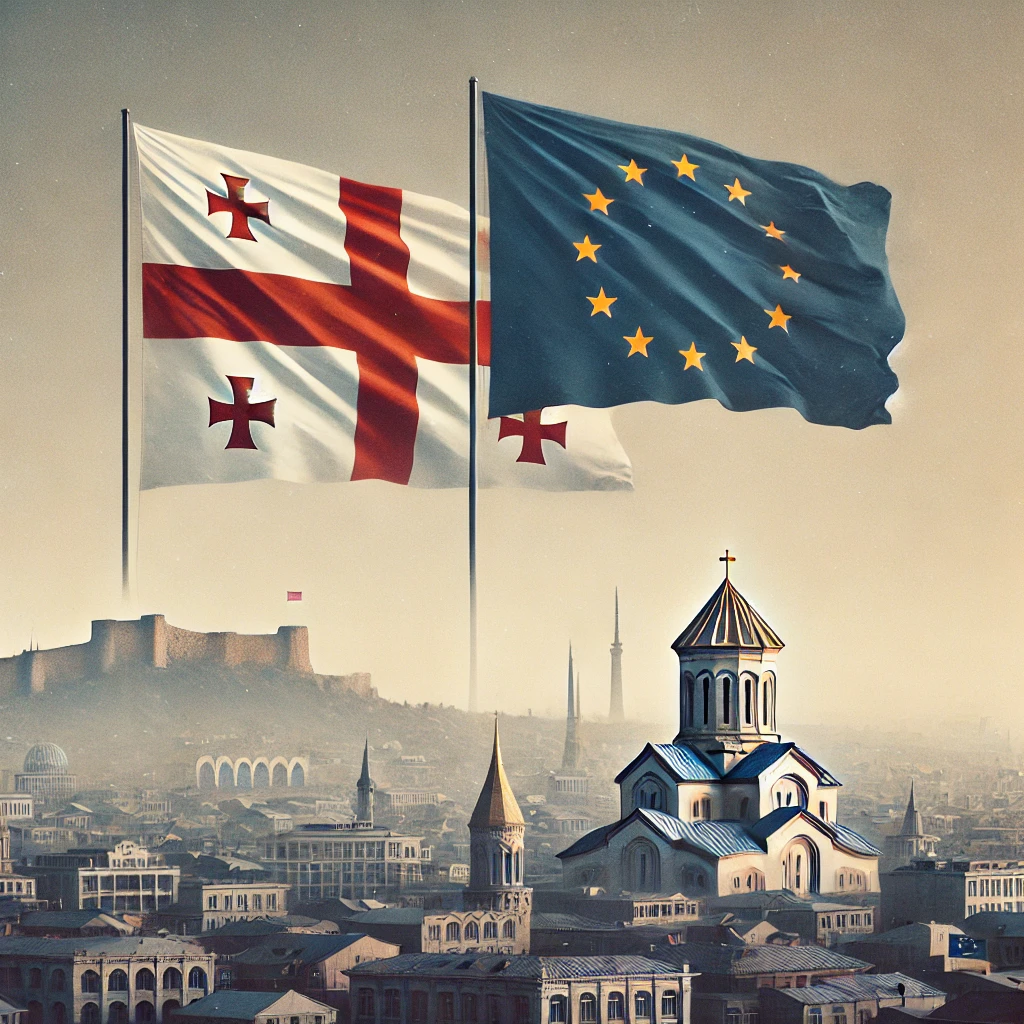In November, Georgian Prime Minister Irakli Kobakhidze announced the ruling Georgian Dream Party’s decision to pause all accession talks with the European Union until 2028. This led to widespread public outcry in the small Caucasian nation, drawing support from Georgia’s President Salome Zourabichvili.
The protests show no signs of slowing down. With a large section of the country’s populace out on the streets, the Georgian police have cracked down on the protesters. Countries such as Lithuania have called for wider sanctions against the Georgian PM and various other key figures associated with the Georgian Dream party.
That said, why did Georgia suddenly take a U-turn regarding its potential EU membership?
Why Did Georgia Pause its EU Accession Talks?
It only takes a momentary look to see the underlying logic here. The status quo suits Georgia—it already has visa-free travel access to the EU and certain economic privileges. Anything beyond that can cause more harm than good. The European Union has a stringent list of reforms, particularly those of a legislative nature, and all such requirements might be a bitter pill to swallow for any East European country, Georgia being no exception.
Furthermore, the Georgian Dream (GD) party leaders are trying their level best to play a good balancing act with both the West and Russia. Any further accession talks with the EU can upset Russia, which has a vested curiosity in Georgia and takes a keen interest in the fortunes of Georgian billionaire Bidzina Ivanishvili.
As a result, when the EU went as far as calling the Georgian elections unfair and borderline partial, it made good sense for the GD and its Prime Minister to hit back:
The ill-wishers of our country have turned the European Parliament into a naked weapon of blackmail against Georgia, which is the greatest shame for the European Union. In the last three years, the European Parliament has adopted five resolutions full of lies and insults, which were not shared by the Georgian society, the European Commission, and even the European Council.
Of course, the Georgian PM has kept the window open and stated that his country can resume accession talks in the future, “but only with dignity and justice and without blackmail.”
The question is: what does this entail for the European Union?
The EU Needs Georgia
Indeed, Georgia’s decision to give the cold shoulder to the EU does not sit well with Brussels. Siding with the pro-EU protesters, the Union issued a statement:
The Georgian people have once again taken to the streets to reaffirm their aspirations for joining the European Union. The EU strongly condemns the violence against peaceful protesters, who are standing firm for their European and democratic future. These actions by the Georgian government have direct consequences on our relationship.
But Georgia is just one rung of the ladder. After all, the EU can respond well with sanctions — GD might hope that their allies, such as Hungary’s Viktor Orban, can block such moves. Yet, at the end of the day, the EU needs Georgia more than the latter needs the former.
Georgia’s move could set a bad precedent for the other candidate countries. Most of them have been annoyed by the EU’s long list of never-ending requirements.
For example, North Macedonia is far from pleased with Brussels’s demand that it amend its constitution and, in the process, grant a few concessions to Bulgaria. Similarly, Moldova may follow suit.
Despite outwardly trying to join the EU, Serbia is also not very keen on fulfilling the Union’s demands of sanctioning Russia, nor does it wish to solve its differences with Kosovo anytime soon.
Geopolitics at Play
Georgia’s decision to pause its EU accession efforts can have far-reaching consequences. This decision can act as a roadblock to the EU’s daydreams of eastward expansion.
The pundits may offer all the reasons they want, but the hard truth behind the EU’s eastward expansion is to keep a check on Russian influence. After all, the Russian invasion of Ukraine acted as a catalyst in boosting the EU accession talks with Ukraine, Moldova, and even Bosnia.
Much like Georgia, Russia’s dominant influence in Chisinau or elsewhere might not be ideal for the EU. Quite obviously, this has entailed a desire to expand the Union, and the recent news out of Georgia might have sent alarm bells ringing.
Conclusion
The people of Georgia are still out on the streets, protesting their government’s decision. Naturally, this shows a strong desire to join the European Union, at least among the common masses.
It can still be attributed to the feeling that the grass is always greener on the other side. A good section of the East European and Caucasian population holds its governments responsible for the various problems the region is facing. This very group strongly advocates EU membership, assuming it to be a step towards forming a possibly “utopian” society, akin to their perceptions of the Western world. As a result, any measure that deepens the divide between the East and the West will likely be met with a strong wave of protests, and the Georgian case is no exception.
That said, Georgia’s entry into the EU has been postponed as of now, if not cancelled. It might take some hard thinking and good efforts on the part of both the European Union and the Georgian Dream party to make it work in the near future.
Featured Image: OpenAI DALL-E

